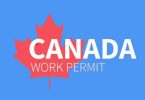Canada, with its thriving economy and diverse opportunities, has become a sought-after destination for skilled professionals seeking a better life. For skilled carpenters, the prospect of migrating to Canada holds immense promise, but the process can be complex. In this comprehensive guide, we’ll walk you through the key steps and considerations to make your migration journey as a skilled carpenter successful and fulfilling.
Understanding the Canadian Immigration Process
The Express Entry System: Your Gateway to Canada
The Express Entry system is the primary pathway for skilled workers to immigrate to Canada. As a skilled carpenter, understanding this system is crucial. It operates on a points-based system, where factors such as age, education, work experience, and language proficiency contribute to your overall score. The higher your score, the better your chances of receiving an Invitation to Apply (ITA) for permanent residency.
Points System for Skilled Migration
To qualify for Express Entry, you need to meet the minimum points requirement. Points are awarded for factors like age, education, work experience, language proficiency, and adaptability. Ensuring you have a competitive edge in these areas will enhance your chances of success.
Eligibility Criteria for Skilled Carpenters
As a skilled carpenter, you must meet specific eligibility criteria to qualify for Express Entry. These criteria include having a valid job offer, language proficiency in English or French, and educational qualifications. Understanding and fulfilling these requirements is vital for a smooth immigration process.
Preparing for the Express Entry Profile
Document Requirements
Gathering the necessary documents is a fundamental step in preparing your Express Entry profile. This includes educational certificates, language test results, a valid job offer, and a passport. Ensuring all documents are up-to-date and accurately presented is crucial for a successful application.
Educational Credentials Assessment (ECA)
Before applying, you must undergo an Educational Credentials Assessment (ECA) to validate your foreign educational qualifications. This assessment ensures that your credentials are equivalent to Canadian standards, a key requirement for Express Entry.
Language Proficiency Tests
Proficiency in English or French is a cornerstone of the Express Entry system. Taking language proficiency tests, such as IELTS (International English Language Testing System) or CELPIP (Canadian English Language Proficiency Index Program), is mandatory. Achieving high scores in these tests significantly boosts your overall points.
Job Market Research
Identifying Demand for Skilled Carpenters in Canada
Researching the Canadian job market for skilled carpenters is crucial before initiating the migration process. Identify regions with high demand for your skills and explore job opportunities in those areas. This proactive approach enhances your chances of securing a job offer.
Connecting with Canadian Employers
Networking is key to finding job opportunities in Canada. Utilize online platforms, attend job fairs, and reach out to potential employers. Establishing connections in the Canadian job market can lead to valuable insights and, ultimately, a job offer.
Creating a Compelling Resume for the Canadian Job Market
Adapting your resume to align with Canadian standards is essential. Highlight your skills, experience, and achievements in a format that resonates with Canadian employers. A well-crafted resume significantly improves your chances of standing out in a competitive job market.
Securing a Job Offer
Importance of a Job Offer in the Immigration Process
Having a valid job offer is a significant advantage in the Express Entry system. It not only contributes to your points but also demonstrates to immigration authorities that you have a concrete plan for settlement in Canada.
How to Approach Canadian Employers
Initiating contact with Canadian employers requires a strategic approach. Tailor your communication to showcase your skills and express genuine interest in contributing to the Canadian workforce. Networking events and online platforms can be powerful tools in connecting with potential employers.
Showcasing Skills and Experience Effectively
During the job application process, emphasize your carpentry skills and experience in a way that aligns with the specific needs of the Canadian market. Clearly articulating how your expertise meets the demands of the local industry increases your chances of securing a job offer.
Navigating Provincial Nominee Programs (PNPs)
Understanding the Role of PNPs in Skilled Migration
Provincial Nominee Programs (PNPs) provide an alternative pathway for skilled workers to immigrate to Canada. Each province has its own PNP, allowing them to nominate individuals with skills that align with their economic needs. Researching and understanding these programs can open additional avenues for skilled carpenters.
Researching Carpentry Opportunities in Specific Provinces
Different provinces have varying demands for skilled carpenters. Researching the specific requirements and opportunities in each province helps you tailor your migration strategy. Some provinces may have higher demand for certain specialties within carpentry, so aligning your skills with regional needs is advantageous.
Provincial Nomination Process
The process of obtaining a provincial nomination involves meeting the criteria set by the respective province. This may include having a job offer, meeting specific skill requirements, and demonstrating the intention to settle in the province. Successfully obtaining a provincial nomination enhances your Express Entry profile.
Completing the Immigration Application
Step-by-Step Guide to Filling Out the Express Entry Application
Once you have all the necessary documents and information, completing the Express Entry application is the next step. This section provides a detailed guide, ensuring you provide accurate and detailed information to enhance the strength of your application.
Providing Accurate and Detailed Information
Precision is key when filling out the application. Provide accurate information regarding your education, work experience, language proficiency, and other relevant details. Any discrepancies could lead to delays or even rejection of your application.
Common Mistakes to Avoid
Navigating the immigration application process can be complex, and errors can be costly. Be aware of common mistakes applicants make, such as providing incomplete information, neglecting to include all required documents, or misunderstanding eligibility criteria.
Preparing for the Permanent Residency Interview
Overview of the Interview Process
Selected candidates may be required to attend a permanent residency interview. Understanding the purpose of the interview, which is to assess your genuine intent to settle in Canada, is crucial. This section provides insights into what to expect during the interview process.
Common Questions Asked During the Interview
Preparing for the interview involves anticipating questions related to your background, qualifications, and reasons for immigrating to Canada. Familiarize yourself with common questions to respond confidently and effectively.
Tips for a Successful Interview
Success in the interview is not just about providing accurate information but also demonstrating your commitment to becoming a valuable contributor to the Canadian community. This section offers practical tips for a successful permanent residency interview.
Adapting to Canadian Culture
Understanding Cultural Nuances in the Workplace
Adapting to a new work culture is essential for a smooth transition. Learn about Canadian workplace etiquette, communication styles, and expectations to integrate seamlessly into your new professional environment.
Connecting with Local Communities
Building connections beyond the workplace is equally important. Joining local communities, participating in events, and engaging with fellow residents help create a support system and enhance your overall experience in Canada.
Overcoming Challenges of Relocation
Relocating to a new country comes with its challenges. Language barriers, cultural shock, and adjusting to the climate are common hurdles. This section provides practical advice on overcoming these challenges and thriving in your new Canadian life.
Navigating Housing and Financial Considerations
Tips for Finding Suitable Housing in Canada
Securing suitable housing is a priority upon arrival. This section offers tips on researching neighborhoods, understanding rental agreements, and finding accommodation that aligns with your preferences and budget.
Financial Planning for the Initial Settlement
Financial planning is crucial for a smooth transition. Understand the cost of living in your chosen city, budget for initial expenses, and explore financial assistance programs available to newcomers.
Opening a Canadian Bank Account
Setting up a Canadian bank account is a fundamental step in managing your finances. Learn about the documents required, types of accounts available, and the process for opening an account in Canada.
Accessing Canadian Healthcare System
Overview of the Healthcare System in Canada
Understanding Canada’s healthcare system is essential for your well-being. Learn about the public healthcare system, how to access medical services, and the importance of obtaining health insurance upon arrival.
Enrolling in Health Insurance Programs
While Canada has a public healthcare system, additional health insurance coverage is recommended. Explore health insurance programs available to newcomers and ensure you have adequate coverage for your needs.
Understanding Healthcare Rights and Responsibilities
Familiarize yourself with your rights and responsibilities within the Canadian healthcare system. Understanding how to access medical services, schedule appointments, and navigate the healthcare landscape contributes to a seamless settlement process.
Joining Professional Associations
Importance of Joining Carpentry Associations in Canada
Being part of professional associations enhances your integration into the Canadian carpentry community. Learn about the benefits, networking opportunities, and resources available through these associations.
Networking Opportunities and Benefits
Networking is a powerful tool for career growth. Attend industry events, connect with fellow professionals, and explore mentorship opportunities within carpentry associations.
Staying Updated on Industry Trends
Remaining informed about industry trends is crucial for career advancement. Carpentry associations provide valuable resources and updates, ensuring you stay at the forefront of developments in your field.
Building a Successful Career in Canada
Tips for Career Growth and Advancement
Building a successful career involves continuous learning and growth. This section provides tips on pursuing additional certifications, attending professional development programs, and positioning yourself for career advancement in the Canadian job market.
Continuing Education Opportunities
Canada offers a range of educational opportunities for career development. Explore continuing education programs, workshops, and courses that enhance your skills and contribute to your long-term career goals.
Contributing to the Local Community
Becoming an active member of the local community not only enriches your personal life but also contributes to your professional success. Engage in community initiatives, volunteer opportunities, and social activities to build meaningful connections.
Common Challenges and How to Overcome Them
Language Barriers
Language can be a barrier, especially in the initial stages of settlement. This section provides practical tips for improving language skills, accessing language programs, and overcoming communication challenges.
Cultural Shock
Adjusting to a new culture can be overwhelming. Learn strategies for navigating cultural shock, embracing diversity, and integrating into the Canadian way of life.
Coping with Climate Differences
Canada’s climate varies significantly across regions. Prepare for the climate of your chosen destination, invest in appropriate clothing, and explore activities that help you embrace and enjoy the Canadian weather.
Conclusion
In conclusion, the journey to migrate to Canada as a skilled carpenter is an exciting and rewarding endeavor. By understanding the intricacies of the immigration process, preparing thoroughly, and adapting to the Canadian way of life, you can build a successful and fulfilling career in this welcoming country.





